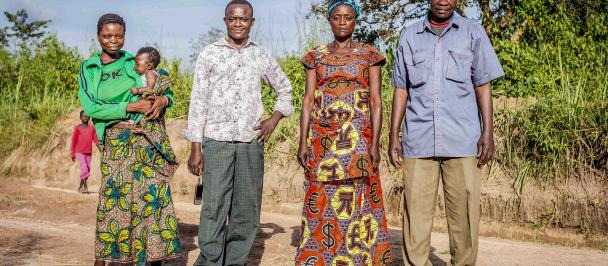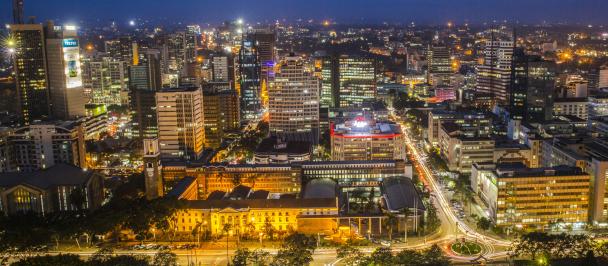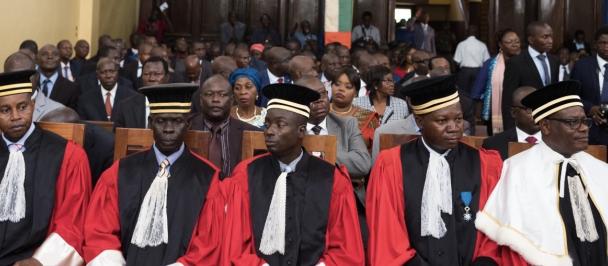Remarks by Crisis Bureau Director Asako Okai as part of UNDP Development Dialogues: Rethinking solutions to crisis in the Decade of Action.
Rethinking women’s leadership in crisis situations
March 8, 2021
Excellencies, friends, partners, colleagues around the world,
Welcome to today’s discussions on rethinking women’s leadership in crisis situations. This is held as part of our Development Dialogues: Rethinking Solutions to Crisis in the Decade of Action series, where over the course of the next four months, UNDP aims to shine a spotlight on the most urgent action required to support those living in crisis to move towards sustainable development.
This year’s theme of International Women’s Day is “Women in leadership: Achieving an equal future in a COVID-19 world.”
As we celebrate International Women’s Day today, we are renewing our commitment for advancing gender equality, women’s empowerment, and for the Women, Peace and Security agenda.
The COVID-19 pandemic exacerbated existing gender inequalities, causing rising violence against women and girls globally, and disproportionate negative economic consequences. The pandemic hit women hard, especially for those already in conflict and crisis affected situations.
We are at a critical moment for change. As UN Women Executive Director Phumzile Mlambo-Ngcuka puts it, “Change up the pace: women at the table.”
We saw once again the criticality of ensuring women to be at the decision-making table in crisis response. Women's leadership is also vital for designing preparedness and prevention plans.
As our Administrator Achim Steiner stated today: “Women must have the opportunity to play a full role in shaping the pivotal decisions being made right now,” as choices we make as we recover from the COVID-19 pandemic “will affect the wellbeing of people and the planet for generations to come.”
While there are breakthroughs to celebrate, the vision of the Beijing Declaration and Platform for Action has not yet realized. Why that is the case?
Again, I quote from the UN Women Executive Director: “The universal and catastrophic lack of representation of women’s interests” in all the areas where decisions are made. The uncomfortable truth is that trying to shift a power balance is often faced with immediate resistance. Until now, decisions in both crisis and non-crisis situations were mostly made by male-led institutions. This long-standing power imbalance is held in place by structural inequalities, discriminatory social norms and social and economic disparities.
To challenge this, we need a systematic approach to create an enabling environment. UNDP has been conducting a series of consultations and innovative learning process over the past year to find out how we can do things differently. We wanted to know what has worked and what hasn’t.
Today, my colleague Sarah will talk about the insights coming out of these processes. We are also privileged to hear directly from women leaders and peacebuilders in the distinguished panel, who had helped UNDP arrive at a new bold approach that we would like to propose today.
UNDP’s call for a bold approach: Announcing the Facility
We are convinced that UNDP’s work must help trigger a seismic shift in the power imbalances that drives gender inequality. We need to move from inclusion to transformation. For that to happen, we need a concerted effort by the whole of society to support women’s representation actively and intentionally.
This requires political will. To disrupt the status quo, UNDP is working to amplify women’s voices and promote their participation and leadership in public institutions, parliaments, the judiciary, and the private sector. We also need to work more with civil society groups to empower them, and to build local, national and global coalitions for change. And we will make an extra effort to engage with women leaders from all backgrounds to give voice to the unheard.
Recognizing that UNDP is well positioned to act as a convenor, we would like to step up our efforts in forging both traditional and new partnerships to overcome challenges, harnessing the respective strengths of different actors, from grassroots community actors to national governments, UN Women and other fellow UN agencies, donor countries, private sector and homegrown innovators, to tailor solutions.
UNDP’s range of tools will help to analyze and provide integrated area-based responses, and to translate theoretical ideas into results. We need integrated solutions at scale, and for that, multi-stakeholder collaboration is essential. We also recognize that delivering solutions to complex problems with sustainable impacts must be based on data, evidence, and correct analysis. We need to further invest in innovation and digitization as well.
To support our new approach in crisis settings and respond to the recommendations we received, I am very pleased to announce today the establishment of UNDP’s new Gender and Crisis Engagement Facility.
The Facility will act as a one-stop-shop that supports country, regional and global teams to drive forward transformational change in crisis contexts with a focus on women’s leadership, economic empowerment, human rights and access to justice. The Facility intends to act as a ‘success aggregator’ of gender-transformative programming covering the full range of UNDP’s work, providing knowledge and evidence, technical support capacities, and seed funding for innovation.
With this Facility, we will ensure that our efforts are opening new avenues for collective social and economic empowerment. We will strengthen our abilities, for instance, to better understand and respond to intersectional inequalities, including how gender equality, climate and security are linked.
The Facility represents an ambitious but vital commitment to harness UNDP’s strengths, to work in partnerships with other actors. UNDP is investing its own resources to kick-start this bold approach. We look forward to engaging with interested donors who would like to invest in us as we scale up our new approach.
Distinguished participants,
UNDP is committed to helping countries across the globe, together with all partners, to put women and girls – their inclusion, representation, rights, and protection – at the centre of all efforts.
As we recover from the past year and turn our sights towards 2030, we must build forward better, with inclusion and with equity, to fully realise women’s leadership in crisis situations.
Thank you.

 Locations
Locations




